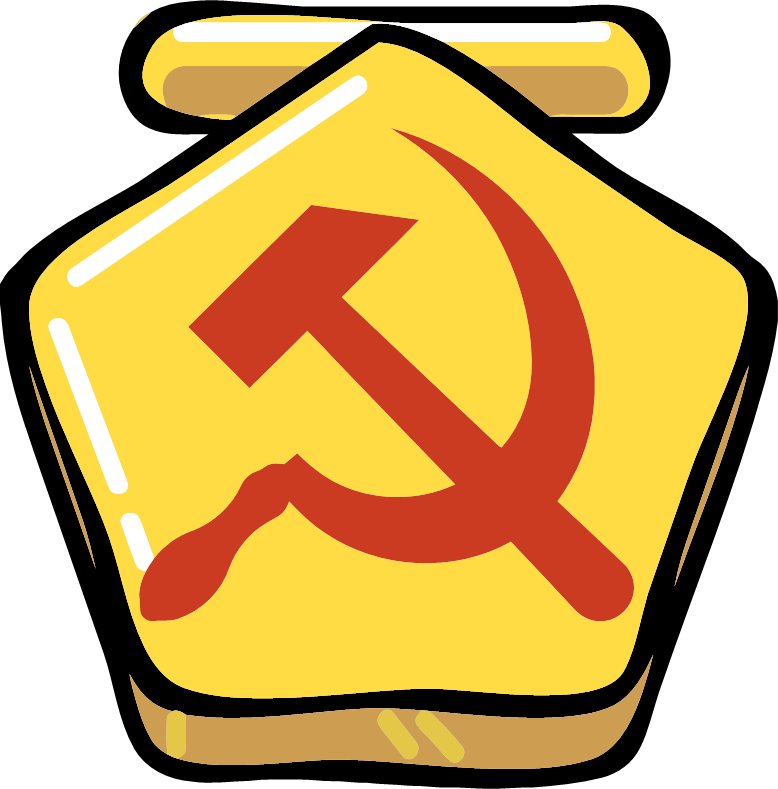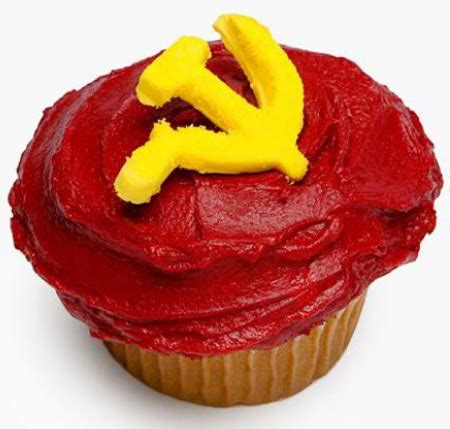Of course, there will be many interpretations, but what are the defining Marxist ideas on the definition?
I ask, because you see a lot of libs and liblefts calling America fascist, but then being asked how, and not being able to respond. It makes them (and us, because we always get lumped in with them) look bad. I’d like to be able to step in if I ever witness such a thing.
The best essay I’ve seen that really drills into fascism - not just how it’s presented itself throughout history, but what it is at some fundamental level, and how the various fascisms of various states are interlinked - is Roderic Day’s Really Existing Fascism, which both explores fascism and also explains how Nietzche is its progenitor (although, as always, it’s more complicated than that) much like Marx was communism’s progenitor (of the non-anarchist variety, and again, it’s more complicated than that).
The most relevant part of the essay (though the whole thing is very good and worth reading):
spoiler
The model of an equilateral triangle, where each of liberalism, fascism, and socialism represents a different vertex, is incorrect. Rajani Palme Dutt’s claim that fascism represents “capitalism in decay” and “the death-rattle of the dying bourgeois civilization” also confuses things. [63] Fascism is as co-constitutive of capitalism as liberalism is. Liberalism corresponds to the operational aspect of surplus value exploitation in the core, whereas fascism corresponds to the operational aspect of primitive accumulation at its temporal and spatial boundaries.
A much-simplified — but still useful — version of the “stagist” Marxist model of historical development looks like this:
Primitive communism
Slavery
Feudalism
Capitalism
Socialism
CommunismDescribing fascism as the “death-rattle” of stage four obscures the fact that it has been present from the outset. Fascism is just the operational aspect that the unlucky part of the globe gets to experience capitalism as. We need to expand the model into a second dimension to integrate this understanding.
I propose the following:
Primitive communism
Slavery [64]
Feudalism — Ideological superstructure in defense of divine right (monotheistic hereditary land claims)
Capitalism — Ideological superstructure in defense of individual genius (entrepreneurship, race science, will to power)
Expropriative aspect: Primitive accumulation, fascism.
Exploitative aspect: Wage labour, liberalism.
Socialism — Ideological superstructure in defense of mass consciousness (Soviets, democratic dictatorship of the proletariat, scientific socialism). Multiple aspects (e.g. “Socialism with X characteristics”)
Communism — Ideological superstructure no longer has any class or state content.This model conceives of the Axis powers as failed fascist experiments in empire-building, and the North Atlantic empires as successful ones. Fascism as an accusation stops relying on a cartoonish depiction of the Nazis as a cautionary tale of a potential future dystopia. Instead, it captures the fact that vicious dehumanizing brutality is co-constitutive of the violent, white supremacist, “freedom-loving” Western worldview.
I’ve seen Umberto Eco’s checklist simultaneously be rejected and accepted by the left. Some will say that it’s non-Marxist and prefer not to use it, but if anybody here says “the enemy is both strong and weak,” nobody (that I’ve seen) rejects that rhetoric device. I think the list is… fine. It’s a useful object to create pipelines further left. It’s “fun” to go down the list and explain how each bulletpoint corresponds to a feature in American society, because some of those things are just so accepted that it’s like trying to tell a fish that water exists. But one mustn’t lose sight of the definition of fascism given above.
The left-liberal conception of fascism is pretty interesting and/or strange, though. As you say, “you see a lot of libs and liblefts calling America fascist, but then being asked how, and not being able to respond.” If you’re a liberal, and your entire conception of fascism is “It’s what Hitler did,” it is pretty confusing to call America fascist. Where are the death camps? Where is the dictator?
I think at least one of the big reasons why liberals get so confused about fascism - simultaneously opposing it yet fumbling around about definitions and comparisons; calling Trump a fascist and yet not violently opposing him - is that by being liberals, they don’t really fundamentally disagree with any of the tenets of fascism. The problems with Hitler are very easy to describe. How many of them could, if pressed, offer an explanation of why exactly Mussolini was bad, let alone Franco? The “trains ran on time” myth is very emblematic of this sort of begrudging respect that liberals have for fascism. And how many liberals could articulate why the genocide of Native Americans isn’t remembered with as much abject horror - never again! - as the genocide of European Jews? How many of them have positive or at least complicated impressions of Manifest Destiny, but shudder at the word Lebensraum?
In the liberal conception of reality, the Jewish people endured so much hardship that they deserved a state and endless money to protect themselves - could they explain why, without looking like fascists, the Native Americans don’t deserve this? Can they explain, without looking like fascists, why neither them nor Black Americans deserve reparations? Many strange contradictions abound due to the white supremacy hiding like a black hole at the center of liberal ideology. This black hole is not there by accident. In the essay I linked, it’s explained that liberalism came into being to excuse and justify slavery, essentially. Many of the top liberal figures (thinkers and leaders) had atrociously racist views. This cannot be dismissed as “people were racist back then” because no, not everybody was bigoted back then, unless you don’t consider people outside the West to be people (that white supremacy again!). Stalin, as the essay quotes, was against anti-semitism and had strong principles about why. He accepted hundreds of thousands of fleeing Jews at the same time that the US was sending ships full of Jews back to Germany, for a large number of their occupants to later die in concentration camps. Liberalism has no problem with fascism’s bigotry and atrocities, while socialism opposes it.
One of the major problems with basic political communication with liberals today is their denial of the principle contradiction (imperialism), as well as the anti-communist propaganda that has totally polluted their conception of reality and history, and talking about fascism is one of the best ways to illuminate the divide between liberals and socialists.
GOOD post
I’ve seen Umberto Eco’s checklist simultaneously be rejected and accepted by the left. Some will say that it’s non-Marxist and prefer not to use it, but if anybody here says “the enemy is both strong and weak,” nobody (that I’ve seen) rejects that rhetoric device.
Ur-fascism should be understood and used as what it is, an essay on the semiotics of fascism. It works as a critique of ideology, and it works very well in that regard. What it does not achieve at all, because that lies outside of the scope of that essay, is explaining the historic and material roots of fascism, which is where the usual Marxist explanations come into play, such as the essay you’re quoting, or the definition by Dimitroff that expanded upon Stalin’s theory of social fascism, Trotzkis counterpoints to that (that put more emphasis on the role of the petit bourgeoisie), the (debatable and in my opinion subcomplex) “agent theory” used in the DDR or later post-colonial variations like the concept of Foucault’s Boomerang or Fanon’s writings. When used correctly, Eco isn’t contradictory to these, but complementary.
I usually use Ur-Fascism just because I don’t know anything better. Fascism is such a squishy phenomena, a politics of vibes, an economics of mask off capitalism. I like what Day is saying, I’m going to save the essay to chew through later.
We really just should be able to drop the concept of fascism entirely and recognize and name liberalism for what it is.
Liberalism: the people born with significant economic and social advantages are liberated to use their advantage to oppress and exploit the shit out of everyone else.
It’s more complex than that. It is the idea that, because we are all equal before the law (as opposed to before where legal privileges were inherited, bought and sold) those that have more have earned it righteously and are therefore liberated in their ability to negotiate contracts with other citizens. This, of course, is nonsense thought from a historical materialist standpoint, but from an idealist standpoint it makes total sense.





IDK if it strictly falls in the line of being Marxist but I’ve long felt that “Fascism is Imperialism/Colonialism turned inward.” hit the mark pretty well especially after reading Fanon and The Jakarta Method. Done overseas, the methods of Imperialism is to use the violence of the State on behalf of the Capitalists as a class, there’s no obfuscation required in order to satisfy the aesthetic performance of a democratic system. That’s why I also feel like it can be seen as an advancing infection whereby the most vulnerable of society can be living under Fascism while those still living in the illusion of the performance are shielded from it until it’s too late.
Oh, an important part of my reasoning that my brain skipped over (and why I brought up Fanon and JM) is that when we look at the violence of imperialism and colonialism we see that it’s directly in opposition to labor organizing and communism. Like communist revolutions are the opposing force which they’re using violence to try and prevent. You’ve always got Labor on one side and the Owners on the other. So when we see those same methods being used at home for the same intention, to me it seems like it fits the bill.
“Fascism is Imperialism/Colonialism turned inward.” hit the mark pretty well
I don’t necessarily disagree (love your history posts, btw) but to me, the point of this definition is breaking down the semantics of how Class War is being carried out? Because the alternative, in my mind upon reading your post, is that Fascism is just whatever Fascist do, and that leaves things even more ambiguous.
I ask, because you see a lot of libs and liblefts calling America fascist, but then being asked how, and not being able to respond.
Completely anecdotal, but my memory of being taught about both fascism and communism in high school (and I was in the more advanced social studies classes mind you) was, they’re very very bad, no good, but no real explanation of what either was structurally. We were taught they did bad things, but the theory/ideology behind it was reduced to “here be dragons.” So I’m not surprised that a lot of people have trouble defining fascism even if their heart is in the right place in opposing it.
I would argue that calling Imperial America fascist is an exaggeration, but that hardly makes it less worthy of our opposition. In Fascist Italy, there was a systematic crackdown on the trade unions, a gradual elimination of opposition parties (starting with socialist ones, which were to be smashed rather than absorbed), a gradual deprecation of the pseudodemocracy, and the ruling class promoted a predominantly petty bourgeois and violently anticommunist movement (Fascism) into an institutional power without even pretending to consult the masses. Imperial America’s suppression of the lower classes has not become that intense (at least not yet).
Michael Parenti laid down a good explanation of Fascism, and he derived much of his theory from Daniel Guerin’s excellent Fascism and Big Business. If you want to study Fascism seriously, that is the book that you want to start out with.
Briefer, communist explanations for Fascism include Clara Zetkin’s The Struggle Against Fascism and Leon Trotsky’s pamplet Fascism: What it is and how to fight it. (I know that you’ll all roll your eyes at me for recommending one of Trotsky’s works—and I do agree that this one is imperfect, to put it succinctly—but I doubt that you’ll strongly disagree with his summary of Fascism either.) For a moderner explanation, I recommend Bes D. Marx’s ‘Why Did Mussolini Move From Marxism To Fascism?’
My own summary is that Fascism was the militant and predominantly petty bourgeois movement that the haute‐bourgeoisie promoted to institutional power to preserve and strengthen capitalism at all costs.
I have nothing to add to the definitions others are giving, but I do wanna say it really annoys me how radlibs and some socialists who are non-Marxist will define fascism mostly as “strong man who appeals to populism”. Like I enjoyed most of the Dollop episode on Huey Long, but Dave at the end describing the basic concept of a demagogue and saying “that is what fascism is” was frustrating. I mean Dave is smart and understands Trump is not really cognizant enough to be a fascist himself, he still defines fascism in a really weak way. It is the same trick people fall into when calling Peron a fascist, even though Peron was at least a fan of Mussolini in the early 30s though for very stupid reasons of buying his propaganda when visiting Italy.
Something similar happened with Quinton Reviews when talking about the History Channel, he sorta goes to far in mocking Nazi inefficiency and ends up saying fascism is internally incoherent and is more or less just a vibe. I think a lot of breadtube and breadtube adjacent folks do this, heck WTYP have done this iirc. People ignore that the ideology and political structure of fascism is a thing, weird and unreasonable as it is, it has theories and shit like the hollow earth that are super goofy stem FROM those reactionary real material forces.
Esoteric fascism is not just the realm of history channel, shit like Sofindus and Executive Outcomes, these orgs literally run by former Nazis who said they communed with Hitler’s spirit, actively did horrifying shit. And fascist ideology was not just left in the dustbin of history, not just reactionaries, but true believers in Hitler personally, got to structure and design our world. The bureaucratic fascists who remained in control of West Germany and the Von Braun types are not so easily divorced from the wacky guys, and said wacky guys had serious sway in the CIA, blew up shit in Italy, ran torture camps in Chile, and formed the basis for modern private military contractors and current torture techniques. Both parts of that equation are relevant.
I HATE when libs say “oh well bigotry is illogical, it doesn’t make sense so there is no structure or path that led to these people” even if they accept that material conditions led to these ideologies. Because they more or less let fascism become the masses going crazy and their irrationalities and anxieties being the driving force hence the scattershot beliefs. This shit ignores that we can track how this shit develops socially, we can trace the esoteric shit and it doesn’t come from the backwards hicks of saxony, it is the fucking Thule society and elite dinner parties.
I think Trueanon’s spider-network series genuinely covers this shit so well
Yeah, there are a million lib essays on fascism that don’t understand that there is a material root to fascism and it’s contradictions. They get so caught up on ‘authoritarianism’ usually though, and get into comparing Mussolini, Stalin and Hitler, which gets them way off course.
The real key as well, imo, is to study the rise of Japanese fascism, because it mirrors the rise of fascism in Italy and Germany, but it does it without having a singular massive ‘authoritarian’ leader (because that is not how the histories of Asian people are written in the West). It’s a little different because it was a continuation of the Imperial system, but you will notice that, for the most part, the Emperor himself was not a singular driving force, but that it was a collective emerging capitalist/noble class decision. It really drives home the idea that fascism is just when you are on the pointy end of capitalism.
mischanneling/freezing class conflict by blaming bourgeoisie crimes on minorities/foreign enemies/local discontents. Popular base of petit bourgeoisie/lumpenproles/army/labor aristocracy (passively) with forward looking golden age mythos and need to get some of that empire.
america is not fascist imho, it got its fascist things out of the way 200 years ago, its just empire
america is not fascist imho, it got its fascist things out of the way 200 years ago, its just empire
its definitely run by some dumb oligarchs who will work with fascists. Is it fascist yes yes yes yes yes
like maybe the United States of America its self isn’t fascist but it sure does spread it…
I think we’re at a point in history where defining movements as fascist isn’t really important. Whatever we’ve got is some kind of post-fascist evolution, bu, iudk, trying to define whether the US is fascist or not seems less important than convincing people that America is the baddies, whatever you name it’s political and economic system.
Yes I agree
it will spread whatever works for oligarchs. Monarchies, theocracies, dictatorships. The only thing which doesn’t work for oligarchs is nationalization of local resources

Yeah shit whatever it is. Just the same old shit. Be pedantic if you want about calling it fascist or not

i feel we need some precision in words, but at the same time i recognize its kinda lost battle. the thing is fascism is forward looking (yes, by channelling the past, but still to the future). All america does is circlejerk itself about the 50s-60s, there is no bridge to the future from there
Well that’s the “future” they want I’m sorry it might even be worse if you ask me but I kinda don’t give a shit. I’ve been awake for to long to argue about it.
In the simplest way to say it. Fascism is anticommunism. Fascism was created at the rise of communism as an opposition to communism.
The reason that fascism is so loosely defined and ideologically incoherent is because they basically inverted the theory that communists had. Fascists look at whatever communists are doing and then do the opposite.
As example, communists have the concept of class conflict whereas workers and capitalists are in conflict because of the exploitation of surplus labor value. Fascists, such as Benito Mussolini, created an opposite concept called “class collaboration” whereas fascists believe that workers and capitalist are collaborating with each other for the benefit of creating a stronger nation, nationalism.
Fascism is just capitalism from the perspective of the exploited. Liberalism is capitalism from the perspective of the exploiters. The term “fascism” originates in anti-union activity in early 20th century Italy, but capitalism itself (a market society in which every aspect of existence is subordinated to market imperatives) begins in 16th century England, though it has some deeper roots in Florence (see the Ciompi Revolt) and Venice (sort of like a medieval proto-USA).
Variations on this question get brought up every once in a while, which is good, I think it’s important to rehash these kinds of discussions even for people who have seen them come up before. But if anyone is interested in skimming over some past hexbear conversation on exactly this topic, here are a couple threads that I think had some good responses too:
I want materialist definitions of fascism please - 1 year ago
What is your definition of fascism? - 2 years ago
edit: Just came across another post from 2 years ago asking specifically what Stalin’s definition was, and @[email protected] turned up an answer, found in a 1941 Speech Stalin gave.
As far as relating fascism specifically to the Neoliberalism of the US, here is an insightful comment by @[email protected]:
Fascism is fundamentally characterized by 1) mass privatization and 2) vicious anti-communism.
The fascist counter-revolution first saw its success in 1920 Italy when the post-WWI nationalized economy gave rise to a strong socialist movement that nearly overthrew the bourgeois government.
WWI ended laissez faire capitalism when it found itself unable to ramp up war production and suffered from inefficient output, and this was a disadvantaged position during inter-imperialist warfare. Instead, state run capitalism became the norm as the imperialist powers were dragged into a protracted Great War during which vast resources and war production could only possibly be organized efficiently with state intervention. Such dramatic changes shifted the leverage to the working class, whom the ruling class became dependent on to win the war. The consequence of this was the explosion of labor and socialist movements throughout Europe, and culminated in the Bolshevik Revolution in Russia that subsequently ended WWI.
As they found themselves unable to resist against the tidal wave of workers movement, inspired by the success of the Bolshevik Revolution in Europe, the liberal capitalist class turned to fascism with the hopes that such extreme brutality could crush the seemingly unstoppable socialist movements. They succeeded, first in Italy in 1922, and then subsequently in Germany in the early 1930s.
One of the first signs of a fascist regime was the mass privatization of the previously nationalized industries:
Benito Mussolini became Prime Minister in October 1922. Nazis rose to power in 1933 in Germany. Mussolini convened a meeting of his cabinet and immediately decided to privatize all the public enterprises. On December 3, 1922, they passed a law where they promised to reduce the size and function of the government, reform tax laws and also reduce spending. This was followed by mass privatization. He privatized the post office, railroads, telephone companies, and even the state life insurance companies. Afterward, the two firms that had lobbied the hardest: Assicurazioni Generali (AG) and Adriatica di Sicurtà (AS), became a de-facto oligopoly. They became for-profit enterprises. The premiums increased, and poor people had their coverage removed.
After the trains were privatized, the services became slower and more irregular, contrary to the popular myth.
In January 1923, Mussolini eliminated rent-control laws. His reasoning ought to be familiar since that is the same reasoning used in many contemporary editorials against rent control laws. He claimed rent control laws prevent landlords from building new housing. When tenants protested, he eliminated tenants’ unions. As a result, rent prices increased wildly in Rome, and many families became homeless. Some went to live in caves.
Once more, these policies allowed landlords to increase their profit and holdings while they severely hurt the poor.
To remove “government waste,” Mussolini removed the federal government from remote areas in Italy. This meant that rural farmers, peasants, and workers no longer had the protection of the federal government against abuse from agribusiness. Instead, they were entirely under the mercy of big businesses.
The austere economic policies in fascist Italy were studied closely by the British marginalists, who were the precursors to the neoclassical economists that eventually found the Chicago school and brought neoliberalism to the forefront of economics.
As such, there is a direct connection where fascism and their austerity economics directly contributed to the development of neoliberalism. Combined with a vicious anti-labor and anti-communist thrust, the models of fascism being replicated in Indonesia in the 1960s, Chile in the 1970s and Russia in the 1990s (Russia being a special case because they didn’t go all the way, as Putin re-nationalized a lot of the key industries since in the early 2000s) under the guise of neoliberalism, during which hundreds of thousands if not millions of communists and left wing activists were brutally murdered.
Within Europe itself, mass privatization began in the UK as early as the 1960s, and began to become part of the European center left/social democratic platforms in the 1970s. Interestingly, most historical account of privatization in Europe conveniently left out the earliest forms of mass privatization that took place under the fascist regimes in Italy and Germany in the 1920s and 1930s.
In other words, neoliberalism is simply fascism rebranded. By all accounts, the neoliberal model of the United States is as close as you can get to fascism - what is missing here is that violence against communists, labor activists, minorities aren’t becoming prevalent yet due to the relatively high living standards of the US being sustained by its foreign imperialist policies.
But don’t let that fool you, just like in the 1920s, they really can turn to fascism in an instant when the situation becomes dire enough to call for it. It took no effort at all in convincing an entire class of liberals in Italy and Germany to support Mussolini and Hitler.
My position is people wank off too hard over definitions and shit especially in 2024 when words mean nothing, and it’s easy to just sum it up as “overtly violent liberalism”
I ask, because you see a lot of libs and liblefts calling America fascist, but then being asked how, and not being able to respond.
I think for me fascism is what happens when people with power and you know some people performing democracy are working to only improve their own position by eliminating democracy for others. Somewhere, sometimes at home but usually last. Whether because the powerful people are literally Hitler or because everything in the current arrangement incentivizes these outcomes. Plenty of people don’t think about the ideology of what they’re doing, but there definitely are ones who do.
I’m fucking stoned but financing the police and militaries of dictatorships friendly to large western shareholders. All those episodes where we just snuffed out of a democracy because of those same shareholders’ interests. Often doing things under false or imagined pretexts engineered by oligarchs. Decisions that put millions of lives at risk, based on Team B, “mind control” accusations on par with Havana Syndrome, and WMD.
After WW2 the country was resegregated racially with CIA drugs as the pretext for FHA redlining. Just because the consensus of a few powerful families, some officially foreigners, doesn’t have a guy going
 and people mostly comply because they’re too powerless on their own and the powerful people were incentivized by market forces that doesn’t make the outcomes for billions of people any less fascistic.
and people mostly comply because they’re too powerless on their own and the powerful people were incentivized by market forces that doesn’t make the outcomes for billions of people any less fascistic.













